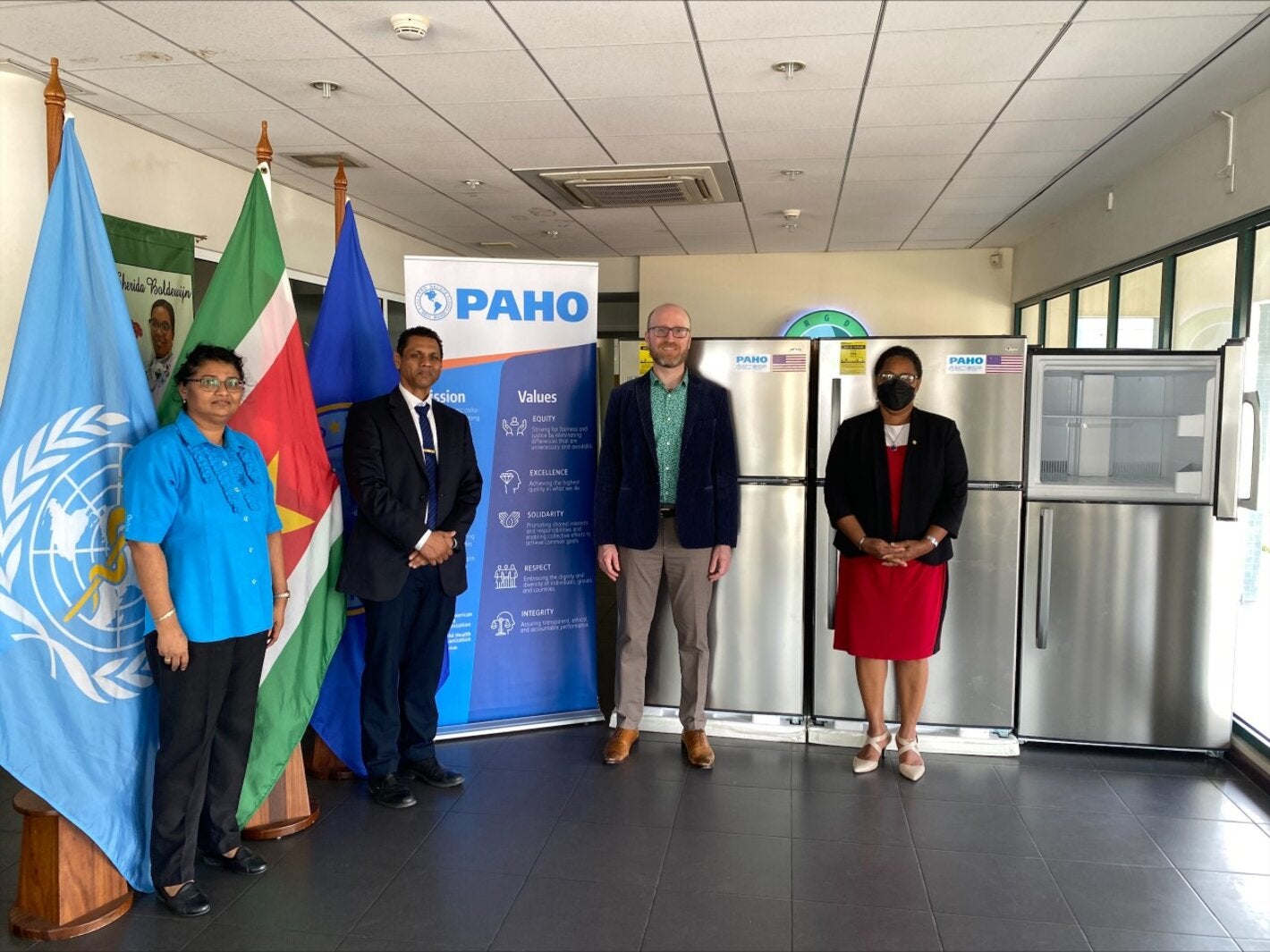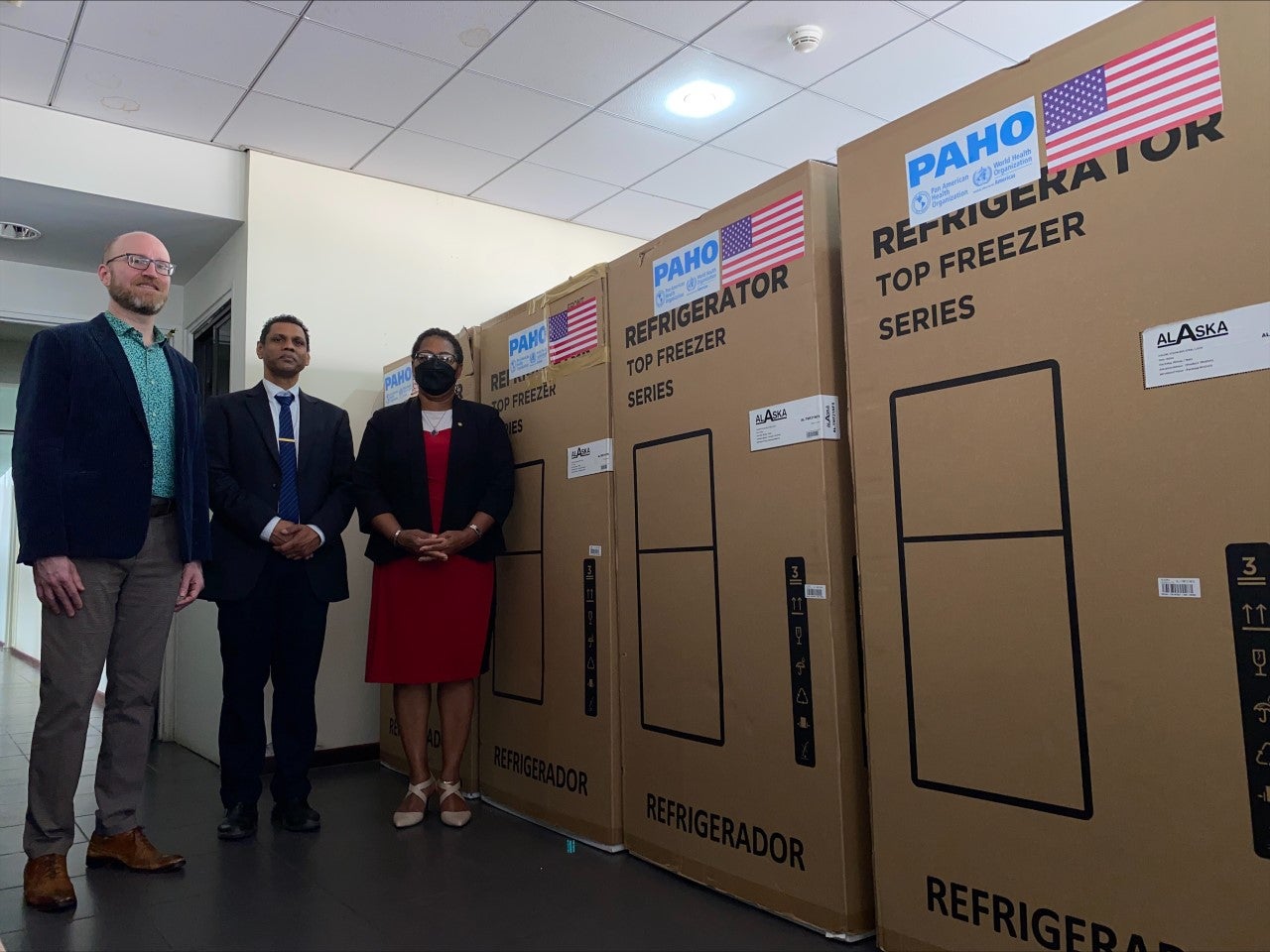
Manager Nursing RGD Mrs. Sharmila Ramdin, Director of the Ministry of Health Dr. Rakesh Gajadhar Sukul, departing Political Economic Chief of the US Embassy Mr. Aaron Jensen, and PAHO/WHO Representative Dr. Karen Lewis-Bell during the handover.
Suriname, August 08, 2022 (PAHO) – As part of a larger donation, made available through funds provided by the United States Government (USG), the Pan American Health Organization (PAHO) donated equipment to the Regional Health Department in Suriname.
The handover was formally done by PAHO/WHO Representative Dr. Karen Lewis-Bell to Mrs. Sharmila Ramdin (RGD), also present were Director of the Ministry of Health Dr. Rakesh Gajadhar Sukul, and departing Political Economic Chief Mr. Aaron Jensen of the Embassy of the United States of America in Suriname.
Dr. Karen Lewis-Bell indicated that “PAHO is pleased to provide technical cooperation to support the strengthening of the cold chain capacity of the primary health care sector. This will serve to ensure quality vaccines used to protect against COVID-19 as well as those used to protect against other vaccine preventable diseases”
The donation to the RGD by PAHO/WHO consisted of 15 refrigerators that will be placed at 15 of the 55 RGD Clinics and will be used for the safe storage of COVID-19 and other vaccines.
The representatives of the RGD expressed their gratitude for this much-needed donation as the health institutions are still facing hard challenges to further improve the current state of the health sector in Suriname.
This donation was made possible through grant funding from the United States Government. In addition, this donation forms part of a larger support to strengthen the maintenance of the cold chain capacity in Suriname.
The departing US Political Economic Chief Mr. Aaron Jensen stated that “The U.S. Embassy is pleased that our government is able to help Suriname’s disease prevention capacity, especially in regions outside the capital, and underserved communities.”




